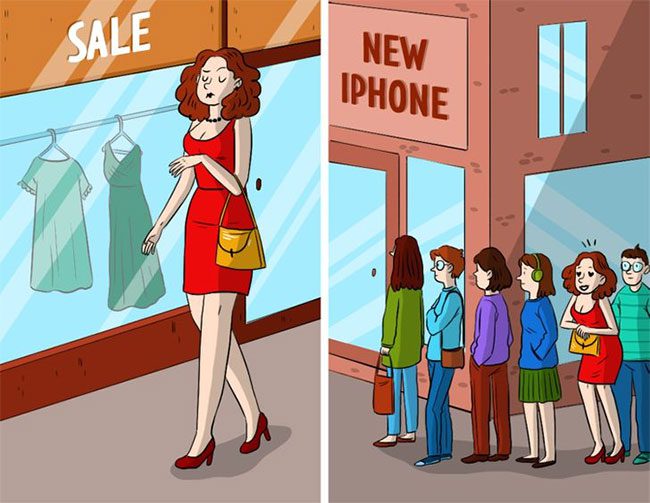Strange and Sometimes Silly Things You Do That Others Often Do Too, Reflecting Common Human Psychology.
The human brain can sometimes act in truly bizarre ways. It leads us to behave irrationally, believe in completely nonsensical things, and even alters our memories. However, every decision we make has a reason behind it. So what exactly influences your choices?
1. Strangers Can Influence Our Behavior
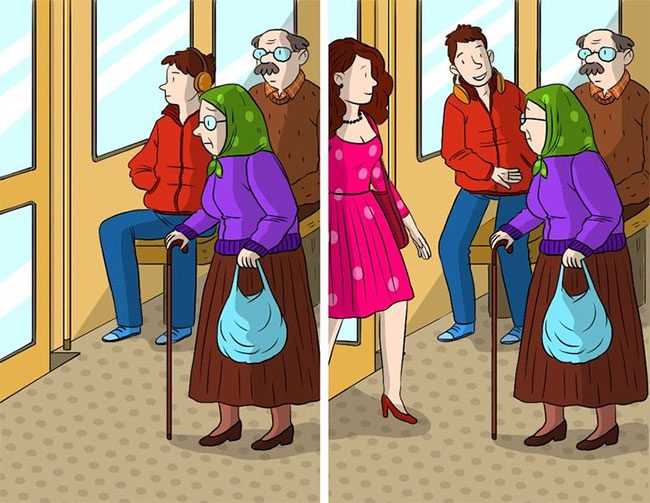
This revolves around the Zajonc theory (social facilitation). You may walk around in a worn-out t-shirt at home but behave like a lady in public. However, a person’s behavior is not only influenced by their immediate social circle but also by the number of accidental witnesses surrounding them at a given moment. For example, a man might give up his seat on a public bus to impress a woman.
How can you avoid getting caught in the “facade” of pretending in front of strangers? Occasionally ask yourself: “Why am I doing this? Am I trying to impress someone and make them like me, or do I genuinely want to do it?”
2. A Person’s Interest in an Experiment Can Change Their Behavior
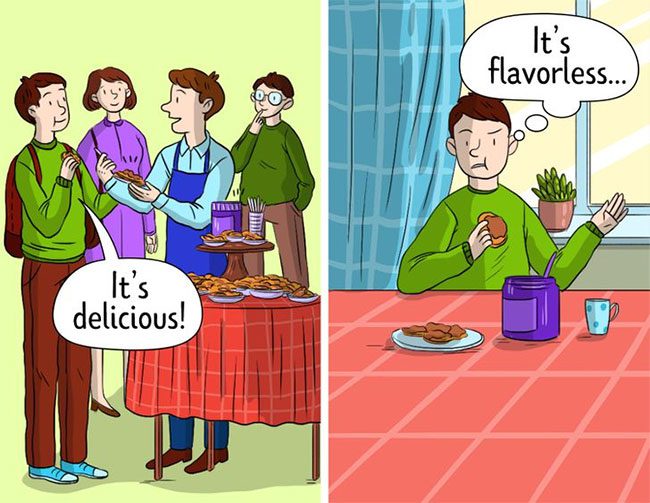
The Hawthorne Effect applies here. A new environment can spark our interest in an experiment or event, causing us to behave differently, act more enthusiastically, and yield false positive results. For instance, in a supermarket, suppose you are offered a taste of a new fish cake flavor and asked to fill out a questionnaire. You might rate it highly in the store, but when you take it home, you realize it’s nothing special.
Try to think clearly and maturely. Responding to a survey or experiment does not obligate you to give the highest ratings simply because you were chosen to participate.
3. People Remember Unfinished Tasks More Than Completed Ones
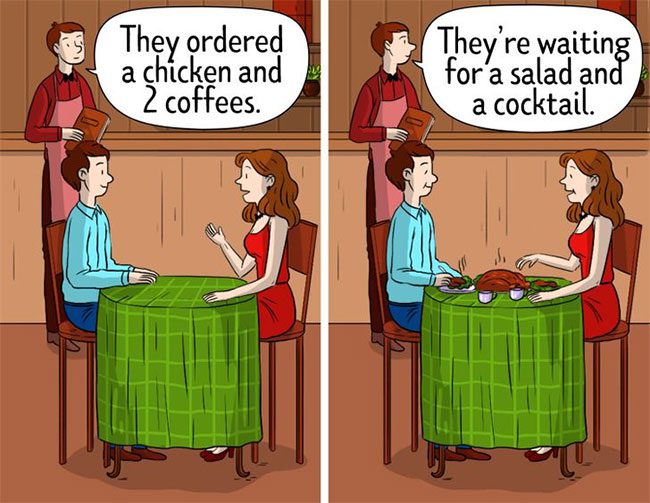
The Zeigarnik Effect applies here. A person is more likely to remember tasks or actions that are unfinished. For example, a waiter remembers your order until they bring it to you, after which they shift their attention to other customers. Very few will remember your request once it has been fulfilled.
To avoid the “trap” of this effect, it’s best to complete tasks to prevent them from lingering in your memory.
4. People Intentionally Buy Expensive Items
This is known as the Veblen Effect – an irrational economic demand for expensive products. This effect is often seen in young people concerned about maintaining their social status. Cheap or discounted products are perceived as inferior.
So when searching for the latest Gucci bag or planning a trip to Europe just to have photos for Instagram, ask yourself: “Am I paying for high quality or for social image?”
5. People Tend to Like Those Who Make Mistakes
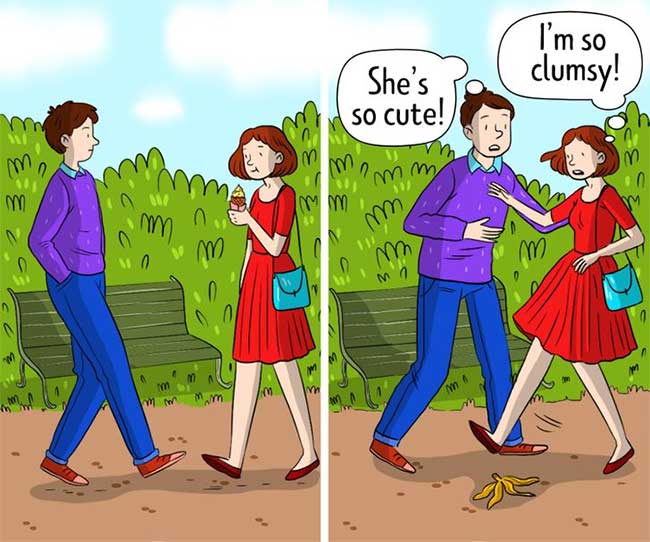
This is an example of the Pratfall Effect. Individuals who appear successful but make mistakes and look silly tend to attract us more. Perfection can create distance and even discomfort.
So don’t hesitate to be clumsy or act silly. Additionally, meeting people becomes much easier when we are ourselves rather than when we act like kings and queens.
6. People Overestimate the Attention They Receive
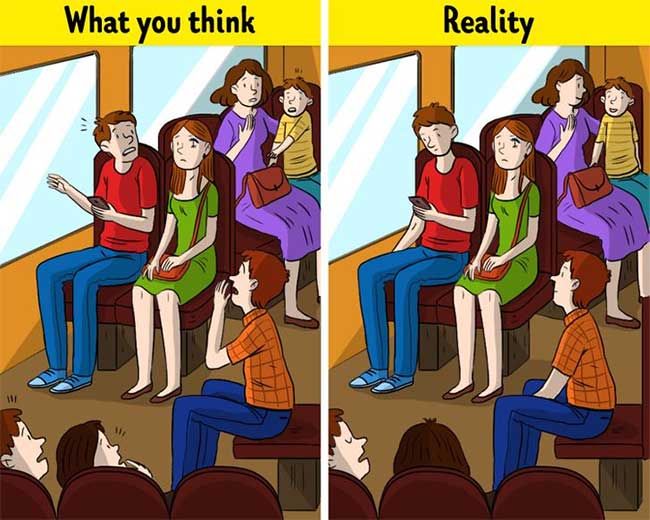
The Spotlight Effect gives the impression that you are being observed and that others are noticing all your mistakes. If a woman forgets to apply mascara to one eye, do you think those around her will notice and mock her? The truth is, people will only notice if the difference is significant.
In reality, people care and recognize our mistakes less than we think. If you have a stain on your shirt, don’t focus too much on it. Think about whether you often notice others’ slip-ups. If the answer is no, then conversely, you’re not being paid that much attention either.
7. The More People Surround You, the Less Likely Someone Will Help You When You Need It
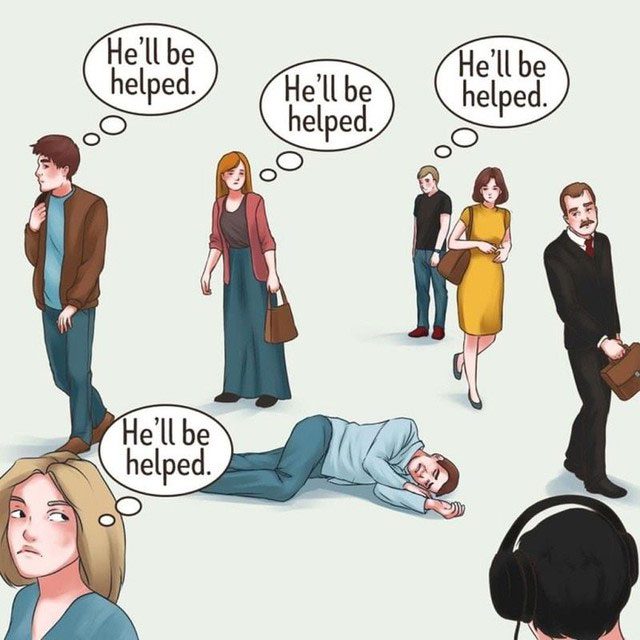
The Bystander Effect applies here. The more people surrounding someone in need of help, the less likely any of them will actually assist. When many people are in one place, each may think that someone else will step in to help. As a result, no one helps.
If you suddenly feel you need help in a public space, don’t call out to the crowd. Instead, ask a specific person for assistance, for example, by calling out their shirt color or location. This way, you will have a better chance of being heard and helped.










































